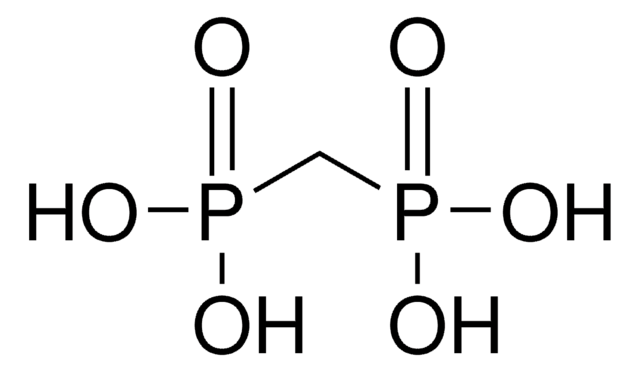220957
Tilorone dihydrochloride
95%
Synonym(s):
2,7-Bis[2-(diethylamino)ethoxy]-9-fluorenone dihydrochloride
About This Item
Recommended Products
Quality Level
Assay
95%
mp
230-233 °C (lit.)
functional group
amine
ketone
SMILES string
Cl[H].Cl[H].CCN(CC)CCOc1ccc2-c3ccc(OCCN(CC)CC)cc3C(=O)c2c1
InChI
1S/C25H34N2O3.2ClH/c1-5-26(6-2)13-15-29-19-9-11-21-22-12-10-20(30-16-14-27(7-3)8-4)18-24(22)25(28)23(21)17-19;;/h9-12,17-18H,5-8,13-16H2,1-4H3;2*1H
InChI key
BSVYJQAWONIOOU-UHFFFAOYSA-N
General description
Application
Signal Word
Warning
Hazard Statements
Precautionary Statements
Hazard Classifications
Acute Tox. 4 Dermal - Acute Tox. 4 Inhalation - Acute Tox. 4 Oral - Carc. 2 - Eye Irrit. 2 - Skin Irrit. 2 - STOT SE 3
Target Organs
Respiratory system
Storage Class Code
11 - Combustible Solids
WGK
WGK 3
Flash Point(F)
Not applicable
Flash Point(C)
Not applicable
Personal Protective Equipment
Choose from one of the most recent versions:
Already Own This Product?
Find documentation for the products that you have recently purchased in the Document Library.
Customers Also Viewed
Articles
Streptococci- Overview of Detection, Identification, Differentiation and Cultivation Techniques
Streptococci- Overview of Detection, Identification, Differentiation and Cultivation Techniques
Streptococci- Overview of Detection, Identification, Differentiation and Cultivation Techniques
Streptococci- Overview of Detection, Identification, Differentiation and Cultivation Techniques
Our team of scientists has experience in all areas of research including Life Science, Material Science, Chemical Synthesis, Chromatography, Analytical and many others.
Contact Technical Service










